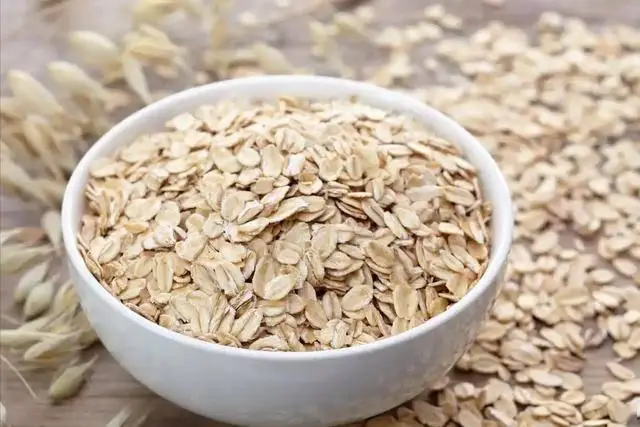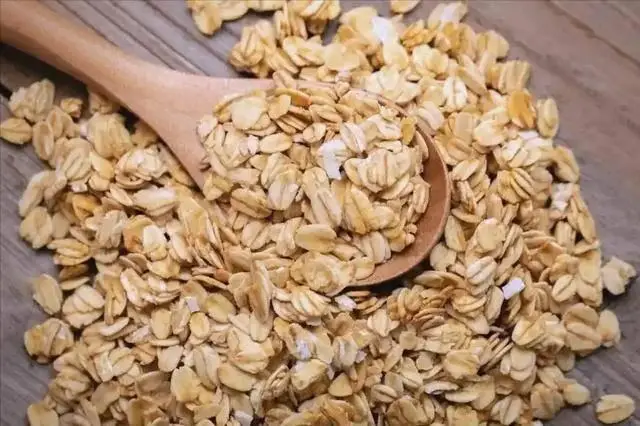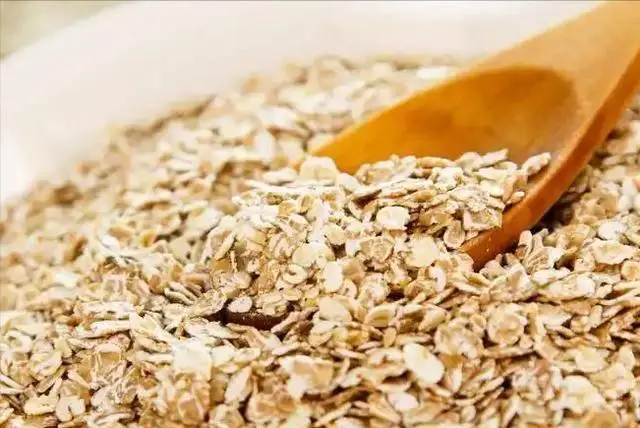Because diabetes is a chronic disease, its management and treatment isn't a one-time solution; it requires comprehensive, long-term care, with dietary management being one of the most important aspects.
In recent years, oats, a food rich in dietary fiber, minerals, and phytochemicals, have been increasingly shown to offer significant health benefits for diabetics.
Some studies have shown that oats not only help stabilize post-meal blood sugar levels in diabetics but also promote a range of health benefits.
For diabetics, every small choice in their daily diet can have a significant impact on blood sugar control. Oats, as a low-GI (glycemic index) food, release sugars slowly, making them an ideal carbohydrate source.

A major concern for diabetics is post-meal blood sugar fluctuations, especially after consuming high-carbohydrate foods. Rapid blood sugar spikes can exacerbate their condition.
Oats, as a food rich in soluble dietary fiber, release energy slowly, effectively preventing drastic post-meal blood sugar fluctuations. Beta-glucan is a key soluble fiber found in oats. It forms a gel-like substance that slows the movement of food through the gastrointestinal tract, prolonging digestion. This slow digestion means sugar enters the bloodstream more slowly, preventing a rapid rise in blood sugar after a meal.

Controlling post-meal blood sugar fluctuations is crucial for people with diabetes. Chronic high blood sugar levels can damage blood vessels, nerves, kidneys, and other organs, and can also lead to vision loss, infection, and other complications.
According to a clinical study of diabetic patients, oats significantly reduced post-meal blood sugar spikes compared to traditional refined rice and bread.
The study also found that patients who included oats in their diet had more stable blood sugar control and reduced insulin requirements compared to those who did not.
People with diabetes often experience excessive hunger after meals, especially shortly after a meal, when blood sugar levels rise rapidly and then fall rapidly, leading to hunger pangs. This hunger can drive patients to eat more, further causing unstable blood sugar levels.
Oats, as a high-fiber, low-GI food, can effectively control hunger and prolong feelings of fullness, thereby helping diabetics control their food intake and avoid overeating and overindulging.
The dietary fiber in oats absorbs water and swells in the stomach, increasing stomach volume and thus enhancing feelings of fullness. Studies have found that oats prolong feelings of fullness longer than many other carbohydrate sources.
This is because the soluble fiber in oats digests slowly, slowing the rate of digestion and allowing food to remain in the gastrointestinal tract longer, helping diabetics reduce their food intake and avoid overeating.
In addition, oats release sugars more steadily, preventing a sharp rise and then a rapid drop in blood sugar after meals, thereby reducing hunger caused by blood sugar fluctuations.

For diabetics, this not only helps with weight control and reduces overeating, but also reduces poor food choices caused by frequent hunger.
A key characteristic of diabetes is the development of chronic low-grade inflammation. Chronic high blood sugar levels can trigger oxidative stress in the body, causing damage to cells and tissues.
Studies have shown that diabetics often have elevated levels of inflammatory markers, such as C-reactive protein (CRP), and elevated levels of these markers are closely associated with the development of diabetic complications.
The various components of oats, particularly their antioxidants and dietary fiber, can significantly mitigate inflammation in the body, thereby reducing the risk of diabetic complications.
Oxidative stress is a major cause of inflammation in diabetics, and oats, by providing a rich source of antioxidants, can help reduce this stress and alleviate inflammation.
Specifically, the antioxidants found in oats, such as coumaric acid and phenolic acids, can reduce free radicals in the body through their antioxidant effects, alleviating chronic inflammation caused by high blood sugar levels.
Research has shown that beta-glucan can help diabetic patients mitigate inflammation and reduce the risk of related complications by promoting intestinal health, regulating the immune system, and reducing inflammatory markers.

By reducing inflammation, oats not only benefit the immune system of diabetics but also slow the progression of complications such as arteriosclerosis and cardiovascular disease. Chronic high blood sugar levels promote the accumulation of fat in blood vessel walls, causing them to become increasingly stiff and lose elasticity. This not only increases the risk of heart disease and stroke but also impairs normal blood flow.
The dietary fiber and phytochemicals in oats can effectively reduce the risk of arteriosclerosis and improve vascular health.
In fact, studies have shown that people who consume oats generally have lower blood cholesterol levels and better cardiovascular health.
Furthermore, the antioxidants in oats can prevent the onset of arteriosclerosis by reducing oxidative stress and alleviating damage to vascular endothelial cells.
Oxidative stress is a major factor in endothelial dysfunction, and the antioxidant properties of oats can alleviate this stress, maintain vascular elasticity, and reduce the risk of cardiovascular disease.
As a food rich in dietary fiber, phytochemicals, and antioxidants, oats are not only an excellent choice for diabetics to stabilize blood sugar levels, but also an effective ingredient for improving overall health.
Eating a moderate amount of oats daily can not only help diabetics stabilize postprandial blood sugar levels, reduce hunger, and mitigate inflammation, but also reduce the risk of arteriosclerosis, thereby effectively improving their quality of life.

While oats offer many benefits for diabetics, they cannot replace medication. Diabetics should consider their individual needs and balance their diet accordingly, ensuring a comprehensive and balanced diet.
Regular exercise, a healthy sleep schedule, and healthy lifestyle habits are also crucial components of diabetes management. By making informed dietary and lifestyle adjustments, diabetics can better control their blood sugar, reduce complications, and improve their quality of life.
The above information is for reference only. If you feel unwell, please consult a professional doctor.

%20--%3e%3c!DOCTYPE%20svg%20PUBLIC%20'-//W3C//DTD%20SVG%201.1//EN'%20'http://www.w3.org/Graphics/SVG/1.1/DTD/svg11.dtd'%3e%3csvg%20version='1.1'%20id='图层_1'%20xmlns='http://www.w3.org/2000/svg'%20xmlns:xlink='http://www.w3.org/1999/xlink'%20x='0px'%20y='0px'%20width='256px'%20height='256px'%20viewBox='0%200%20256%20256'%20enable-background='new%200%200%20256%20256'%20xml:space='preserve'%3e%3cpath%20fill='%23FFFFFF'%20d='M194.597,24.009h35.292l-77.094,88.082l90.697,119.881h-71.021l-55.607-72.668L53.229,232.01H17.92%20l82.469-94.227L13.349,24.009h72.813l50.286,66.45l58.148-66.469V24.009z%20M182.217,210.889h19.566L75.538,44.014H54.583%20L182.217,210.889z'/%3e%3c/svg%3e)




